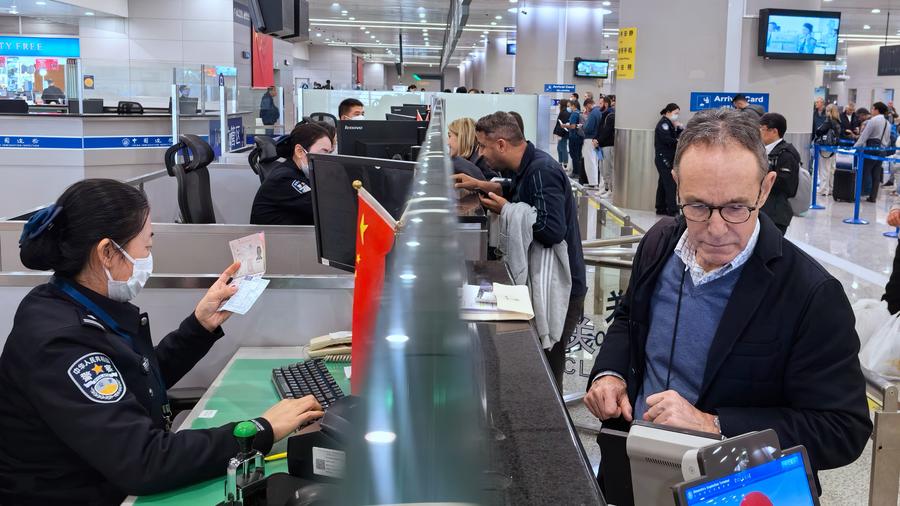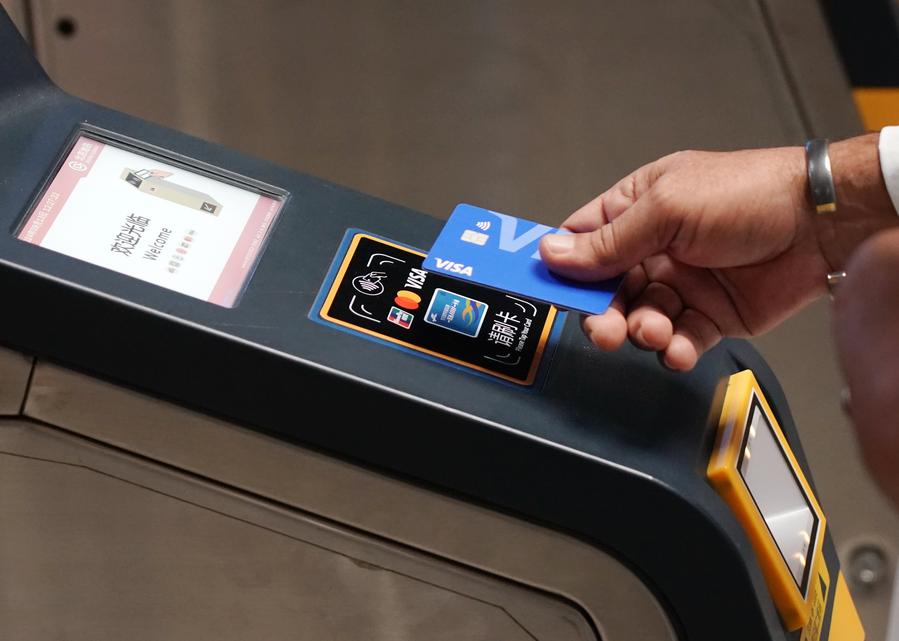Streamlined Travel Policies Open Doors to Unforgettable Experiences

These initiatives underscore China’s commitment to fostering global exchange and mobility, reinforcing its dedication to greater openness as the world’s second largest economy.
China expanded its unilateral visa-free policy to include ordinary passport holders from nine additional countries: Bulgaria, Romania, Croatia, Montenegro, North Macedonia, Malta, Estonia, Latvia and Japan, effective from November 30 to December 31, 2025.
Under the unilateral visa-free policy, visitors can enter China visa-free for stays of up to 30 days for purposes such as business, tourism, family visits, exchanges, and transit. Since it was first implemented a year ago, the policy has been extended to 38 countries.
Meanwhile, China has established mutual visa exemption agreements with 157 countries, covering multiple passport types.
These initiatives underscore the country’s commitment to fostering global exchange and mobility, reinforcing its dedication to greater openness as the world’s second largest economy.
Developing inbound tourism is especially important, playing an important role in both economic growth and cultural exchange, according to Liu Xiangyan, an associate researcher at the Institute of International Research under the China Tourism Academy.
The recent adjustments
China has launched a range of initiatives to attract international visitors in the post-pandemic era, including granting unilateral visa exemptions to a growing list of countries.
On November 24, 2023, the Ministry of Foreign Affairs announced a one-year trial of visa-free entry for ordinary passport holders from France, Germany, Italy, the Netherlands, Spain and Malaysia, effective December 1, 2023. This policy, renewed in May, allows eligible individuals to visit China visa-free for business, tourism, family visits or transit purposes.
As of November 30 this year, the unilateral visa-free policy had expanded to cover 38 countries. Recent additions also demonstrate greater flexibility by including “exchange” as a valid purpose for travel.
China has also broadened visa-exempt transit policies, allowing travelers from 54 nations to stay in the country visa-free for up to 144 hours after entering through 37 designated ports before proceeding to a third destination, and up to 72 hours after entering via four ports, namely, Changsha in Hunan Province, Harbin in Heilongjiang Province, as well as Guilin and Beihai in Guangxi Zhuang Autonomous Region.
Regional visa-free entry was extended in May to foreign tour groups on cruise ships, enabling them to enter visa-free for stays of up to 15 days through all cruise ports, which are located in 13 Chinese cities.
Additionally, travelers from countries that have diplomatic relations with China can enjoy a 144-hour visa-free stay on the southernmost island province of Hainan, provided they are part of tour groups registered in Hong Kong and Macao special administrative regions.

To further streamline the entry process, China has simplified visa applications by reducing the number of required items by 34 percent, eliminating appointment requirements at embassies, expanding exemptions for fingerprint collection and lowering visa fees by 25 percent.
Efforts to enhance border efficiency have also paid off, with the average inspection time for transit passengers at major airports cut from six minutes to just two.
The results are in
All these measures combined have led to a surge in international arrivals. In the third quarter of this year, China recorded nearly 8.2 million inbound trips by foreign passport holders, a 48.8-percent increase from last year. Of these, approximately 4.9 million travelers entered the country visa-free, reflecting a 78.6-percent year-on-year rise.
China’s business environment has also benefited, with businesspeople from all over the world seeking new opportunities in the country and 42,000 foreign-funded companies established from January to September this year, an 11.4-percent year-on-year increase.
International passenger flights rebounded to 81.7 percent of pre-pandemic 2019 levels in the first half of this year.
“I really appreciate all the measures introduced in visa facilitation and hope more will come in the future,” Alaa Barr, a businessman operating in Yiwu, Zhejiang Province, told Beijing Review. He highlighted that streamlined visa policies not only benefit foreign entrepreneurs, making it easier for them to set up shop and expand their operations in China, but also strengthen economic ties between countries.
Barr expressed optimism that continued improvements will attract more international investors, fostering a dynamic and diverse business community in Yiwu—and China at large.
Tailored for travelers
After arriving in China, foreign travelers can benefit from different conveniences and support systems to enhance their stay.
One big advantage is the accessibility of foreign currency exchange services, which are available at major international airports, four-star and above hotels, as well as key tourist attractions, resorts, and recreational areas nationwide.

Plus, payment options have become more inclusive for international visitors. Travelers can now link their credit cards, including Visa and Mastercard, to popular local payment platforms such as e-commerce giant Alibaba’s Alipay and tech titan Tencent’s WeChat Pay. In October alone, over 2.93 million inbound travelers used mobile payment services in China.
To further support credit card transactions, China has upgraded its point-of-sale (POS) systems in numerous establishments. These facilities are now available at restaurants, airports, scenic spots and shopping malls.
This effort has yielded good results: In October, offline transactions made with foreign bank cards surged by 184 percent, and their transaction value increased by 150 percent from this February.
Beyond financial services, visitors from abroad have access to a range of expat communities and organizations that can offer support and resources, including social events, language exchange programs and practical information about getting around in China.
Furthermore, healthcare services, including international clinics and hospitals that cater to expats, often employ English-speaking staff to address medical needs effectively.
According to Qin Jing, General Manager of Public Affairs at Trip.com, a leading online travel agency in China, the travel preferences of foreign visitors to the country are evolving. “Their destinations exploration has become increasingly diverse and in-depth,” the manager told Chinese newspaper Global Times.
While popular cities like Beijing, Shanghai, Guangzhou and Shenzhen remain top attractions, emerging destinations like Xi’an in Shaanxi Province, renowned for its Terracotta Army, and Chongqing Municipality, famous for its dramatic landscapes and sumptuous cuisine, are gaining traction among international tourists, Qin elaborated.
Moreover, there is a growing interest in traditional Chinese culture, with more travelers opting to explore Chinese temple culture, at sites such as Mount Qingcheng in Chengdu, Sichuan Province—home to the first organized Taoist school of thought, and Lingyin Temple, one of China’s most famous ancient Buddhist monasteries located in Hangzhou, Zhejiang.
Travel agencies are adapting to these changes. Zhou Weihong, Deputy General Manager of Chinese travel agency Spring Tour, noted that the company’s inbound tourism products now incorporate more diverse cultural experiences.
Rather than focusing solely on well-known landmarks, they are increasingly engaging with local neighborhoods, universities, markets and even residents’ homes. “This approach allows travelers to truly feel the warmth and character of the cities they visit,” Zhou concluded.
 Facebook
Facebook
 Twitter
Twitter
 Linkedin
Linkedin
 Google +
Google +










